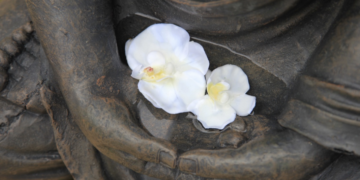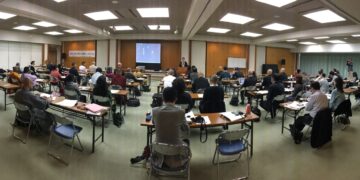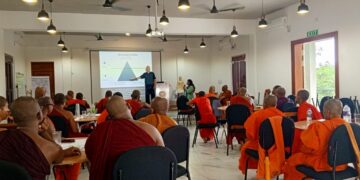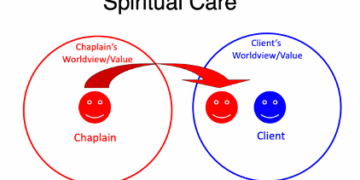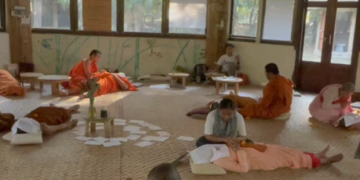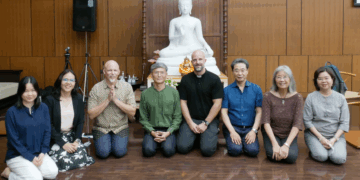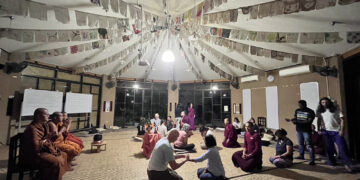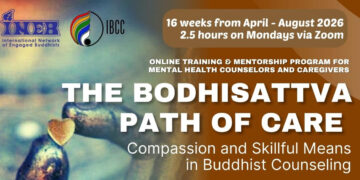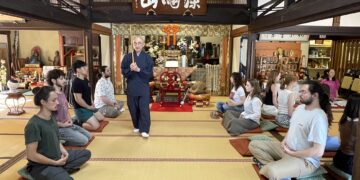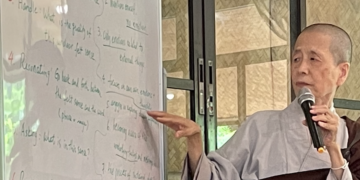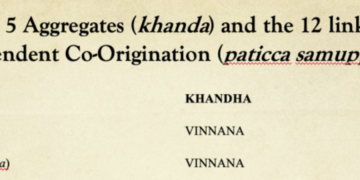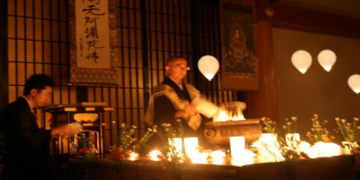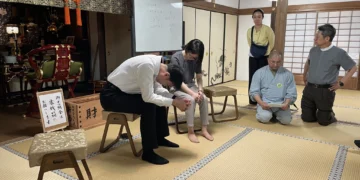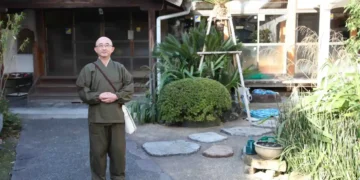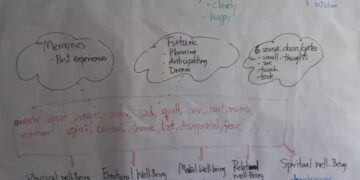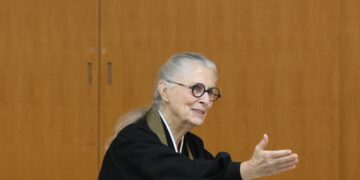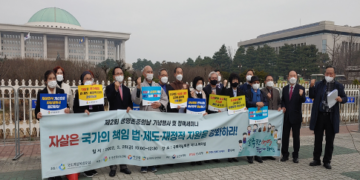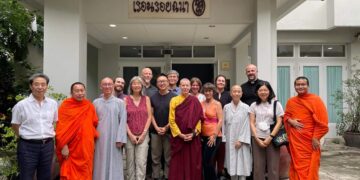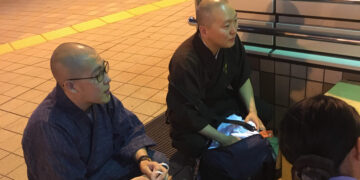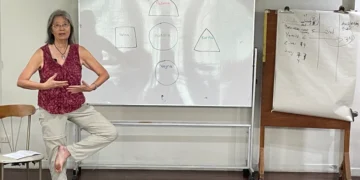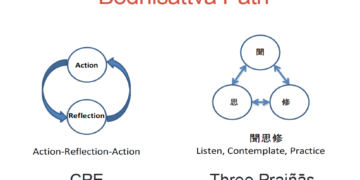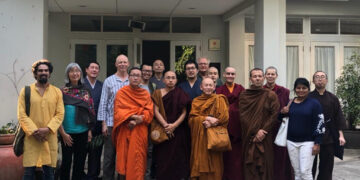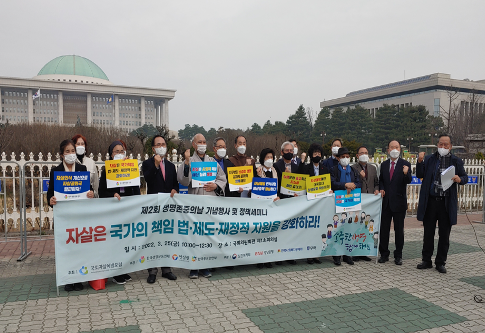The 2nd Life Respect Day Celebration and Policy Seminar sponsored by the Korea Life Movement Union
March 25, 2022
presentation by Prof. Pumsoo Lee (Graduate School of Buddhism at Dongguk University)
I. Press Conference to promote “the strengthening of state responsibility for legal, institutional, and financial support for combatting suicide” led by Buddhist and Christian leaders along with academics and NGO leaders.

II. Ceremony for the 2nd Life Respect Day with A Declaration of Respect for Life
1. No Suicide! You should no longer kill yourself for any reason!
2. We will develop a disconnected and divided society into a community of love for life!
3. We will actively take care of our powerless, sick, poor, and lonely neighbors. We will work hard to create a warm caring community!
4. We will expand our life movement network so that people of all walks of life can participate in the movement!
5. We will actively encourage our society to embrace the sadness and pain of the bereaved families of suicide and to support their condolences and recovery!
6. We believe that all religions are taught through lectures, sermons, and action. In this way, religious persons can actively participate in the movement to spread awareness of respect for life by mobilizing their great capabilities We will do our best!
7. We will make sure that our society actively participates in the life-respect pledge campaign and spread the life movement!
8. We believe that instead of conflict and division in our society, life and peace should be spread to all members in society. We will actively participate in the life movement that provides a win-win culture!
9. We will cooperate and advise the state to work with the private sector as a top priority in projects to prevent suicide and create a culture of respect for life.

III. Policy Seminar to Commemorate the 2nd Life Respect Day
Keynote Speech:
Strengthening State Responsibility for Legal, Institutional, and Financial Support for Combatting Suicide
Rev. Kyung-jo Park
(Anglican Bishop & Senior Advisor to the Korean Religious People’s Solidarity, Permanent Representative of the Green Union)
When all members of a society are obsessed with human instinctive desires without any control, the society becomes a greedy society. This is a fact that has been borne out in the long history of human beings. The term “greedy society” is also the title of a book written by Richard Henry Tawney (1880-1962), who was active in a period when Britain was growing economically at frightening pace during the Industrial Revolution.
Born in an era when Britain reigned throughout the world as an enduring empire, the author is a great economic thinker who devoted his life to analyzing and resolving the causes of social contradictions, such as extreme inequality and unearned income. He argues that the economic assets that a society creates should be used for its members to live like people and that society becomes a greedy society when such assets are used for individual selfish purposes. Therefore, religion should be able to handle the role of controlling this selfish greed in a proper way. In that regard, he criticized the Anglican Church of England at that time for not fulfilling its role.
What about religion in our country? Much to our regret, religion in Korea, almost without exception, has not only failed to fulfill the social function of controlling human greed, but has rather worked in a form that has encouraged human desire. The English word “greedy society” has translated into Korea as an acquisition-type and an achievement society. Whatever the translation, today’s, Korean society seems to be speeding toward a greedy society where nothing can be controlled. In modern capitalist society, humans exist as functional beings rather than ones perceived as dignified in themselves. Words such as “industrial” and “export groups” as well as other terms popular in our society are all forms of language of this society that recognize humans functionally. The term “spec” means a specification of a product. If you read the information on electronic products, “specifications” come out first. Words like this that refer to the performance of a product or its grade (like with beef) are also applied to people. This can be said to be a good example of how the current society views humans.
The value of human utility is determined by how functionally useful humans are, like weapons and electronics, as well as how useful they are to create economic benefits, the value being paid in currency. Yet aren’t humans too mysterious and beautiful to measure only by the value of money? Humans are noble beings who cannot be measured by the value of money. The act of sacrificing for others and dedicating oneself to a better world cannot be measured by money. The sacrifices and love of families and mothers caring for their children show altruism and care in human nature. Therefore, religion can lead this society in good health by developing such human goodness and restraining greed.
The Bible tells us what we know well. “Like your body, love for your neighbor” is a teaching that goes far beyond the moral and ethical dimensions of the individual. Regardless of religion, it is a word of wisdom derived from the deepest realization of mankind. The way out of our folly of competing, fighting, killing, and attempting to enslave and dominate other humans because of human greed lies in realizing this remark deeply. We must try to make this word come true socially. We are all beings born from one source of love. The activity of life can only last permanently in this relationship of love, and only when we live in this relationship, do we realize the meaning of happiness and life.
Suicide is an act of severing this relationship of love and violence against human life. When anger and greed within us are expressed outwards, it becomes violence against others, and when it is collectivized, the violence becomes war. However, when the anger is directed inwards, for some reason, when the ego is weakened to the point where it cannot vent anger to others, the person denies themself as a relationship and inflicts violence on themself. Either way, these actions cut us off from the reality of love, which is the source and root of our existence. This is truly unfortunate. Therefore, we, born as humans, have a responsibility to create loving relationships that care for each other, because we are all deeply connected. This is because the phrase “love thy neighbor” contains the long-standing wisdom of mankind which tells us that we were all born from the same source and that we are all one in a deep sense.
On February 21, 2022, the Korean Federation of Religious Persons, academics, and civic groups visited the National Assembly to deliver life-respecting suicide prevention data for candidates for the 20th presidential election, while urging the government to play a role. It is said that suicide is now a social responsibility issue in which the state should actively intervene beyond an individual problem. I am very thankful for this shift. In the future, religious circles and civic groups should work together to actively cooperate with the government to correct the bitter and painful reality facing our society.
Conclusion by Prof. Pumsoo Lee:
Civic and religious need funds from the government to engage in public campaigning for suicide prevention. However, all such funding goes to doctors for medical interventions, because there are elite doctors who serve in the government bureaucracy and control budgets. This shows a real ignorance because only 10% of suicidal cases come from genetic and physiological causes as opposed to social causes. In this way, the medical level is the last level of intervention. I wish the authorities would start from the cause not from the effect. We do not oppose medical professionals, but simple want a larger pie for everyone to share.
Wages at the large, famous companies are 50-60% higher than smaller ones. The introductory salary for young workers is $40-50,000 vs. $30,000 for smaller, so competition at school is very hard. Those who fail feel like total failures and become depressed with no chance to catch up. People from big companies can marry and start families while others cannot. Confucianism core value is respect elderly and lineage of family. In the past, we were an agricultural society, but now we are 90% industrial and informational. In this wat, the family society is completely broken and also the blood line culture is gone in which family values were passing down. Our interconnection is broken, and this leads to a broken society as a whole. Before, old people gave us the intelligence of how to live in the world and survive. Now such intelligence comes from the smart phone. Korean culture is to be in a hurry and speedy.
See a new update: Pushing Beyond Boundaries: The Korea-Japan Cooperative on Suicide and Self-Death May 28-31, 2024

